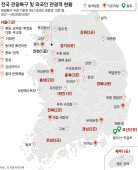Government`s economy-boosting plan falls short of substance
Government`s economy-boosting plan falls short of substance
Posted June. 26, 2015 08:06,
The government has decided to inject more than 15 trillion won (13.5 billion U.S. dollars), including an extra budget, to boost the sagging economy. Announcing the government`s second-half economy management plan, Finance Minister Choi Kyung-hwan said, "The government will strive to maintain growth in the 3 percent range this year by using all available resources including an extra budget and other public funds." At a time when an alarm bell has gone off in the wake of the Middle East Respiratory Syndrome (MERS) outbreak, an extra budget is unavoidable in a sense. The MERS outbreak`s impact on domestic consumption and service industry is much larger than that of last year`s deadly Sewol ferry sinking. A number of domestic and overseas economic think tanks are lowering South Korea`s economic growth outlook to lower than 3 percent for this year.
However, the government`s plan involves recycling past policies and implementing public sector, labor, financial and education reforms, without details as to how an extra budget will be spent. Even the ruling Saenuri Party rejected the plan, while demanding the administration to come up with a concrete plan for the extra spending.
If the government injects the extra budget into pork-barrel projects in lawmakers` electoral districts, rather than spending it to reinvigorate the economy, it would end up hurting the fiscal soundness. In 2013, the government set aside an extra budget of 17.3 trillion won (15.6 billion dollars) and issued treasury bonds worth 15.8 trillion won (14.2 billion dollars), only to fail to boost the economy. The government unnecessarily increased its outlook for tax revenues, increasing revenue shortages. In addition to 11 trillion won (9.9 billion dollars) in tax revenue shortages, a greater amount of shortages are expected this year. Therefore, much of the extra budget will likely be used to cover the revenue shortages. Although the government vowed to pursue the seemingly conflict goals of structural reforms and economic reinvigoration, the extra budget, if not spent properly, will likely cause delays in structural reforms that are essential in strengthening the nation`s economic fundamentals.
Rather, the private sector is moving more quickly. The Korea Chamber of Commerce and Industries on Wednesday proposed 10-point policy tasks, including reforming the medical industry and alleviating individual consumption tax. The Federation of Korean Industries has also encouraged its member companies to allow their employees to take their summer vacation early and go on domestic travels. By contrast, when the finance minister was asked about his poor performance while explaining his economic plan, he said that Koreans should "admit the reality that our country cannot achieve high economic growth any longer." It was cowardly for him to avoid his responsibility as the economic chief of the Park Geun-hye administration, which vowed to achieve a potential economic growth rate of over 4 percent. The government`s economic team deserves the criticism that it is no better than the private-sector business organizations.
Headline News
- N. Korea redefines S. Korea as ‘hostile state’ in revised constitution
- Samsung develops graphic DRAM with industry-leading capacity and speed
- Three questions allegedly leaked via text message during Yonsei Univ. essay test
- China to inject 340 trillion won in loans to support real estate sector
- Dodgers beat Mets to take 2-1 lead in NLCS







